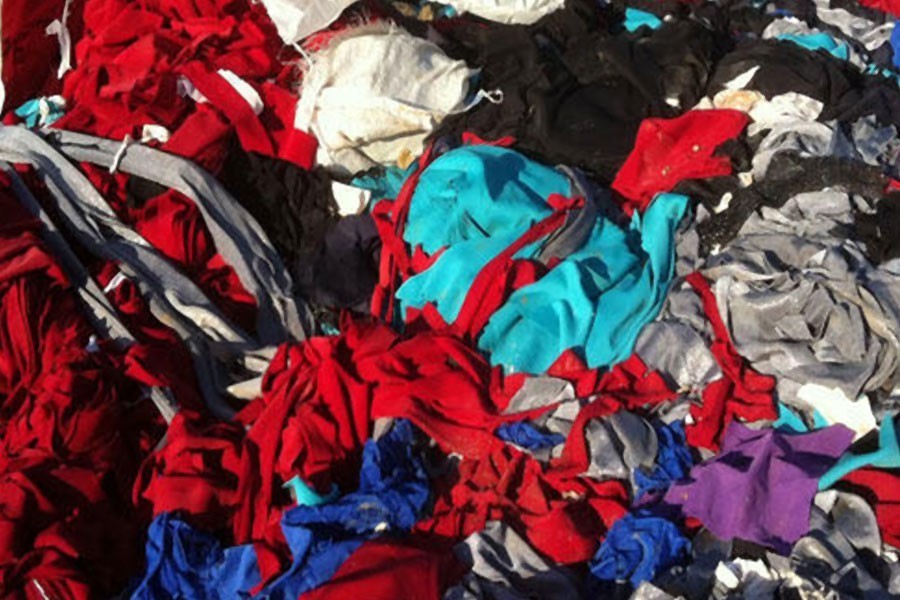A big boon lies hidden in trash as experts say Bangladesh could earn US$3.0 billion annually by recycling textile wastes commonly known as 'jhut' with requisite policy support.
The pre-consumer waste or jhut primarily consists of factory offcuts, scraps and fluffs, industry people say. And around 400,000 tonnes of recyclable pre-consumer waste is produced in the country every year from the manufacture of readymade garments for export.
"The recycling of pre-consumer textile waste provides a lucrative opportunity to Bangladesh, not only economically but also socially and environmentally," says Bangladesh Garment Manufacturers and Exporters Association (BGMEA) president Faruque Hassan.
The 400,000 tonnes of micro-fibers and scraps that are disposed of as waste every year can be recycled to produce about 1.0 billion pieces of garment, which has the potential to generate revenue worth about US$3 billion per annum, he notes.
Therefore, it is imperative to introduce policies to encourage local value addition to this waste, he said on Sunday at the inauguration of a mega-event styled 'Made in Bangladesh Week 2022'.
Prime Minister Sheikh Hasina inaugurated the event jointly organized by BGMEA and Bangladesh Apparel Exchange at Bangabandhu International Conference Centre (BICC) in Dhaka.
The weeklong campaign has been organized to brand Bangladesh by showcasing their capabilities and the new innovations developed at the factories.
Less than 5.0 per cent of the textile wastes are recycled locally while over 35 per cent are incinerated in boilers or landfills, the BGMEA president mentioned.
The rest or 60 per cent of the textile wastes are exported to India, Hong Kong, Sweden and other countries where they are recycled and sold back to the local readymade garment industry as recycled yarn, at a higher cost, Mr Hassan said.
There are already companies that have established recycling plants, like 'Recover' from Beximco and 'Cyclo' from Simco and many other small facilities are recycling Jhut in the country.
"However, it is important to incentivize them, and promote the pre-consumer waste-recycling industry in Bangladesh," he said.
The BGMEA leader also urged the government to allow the import of discarded garments from the EU, the USA, and Japan for reuse through such conversion.
He also requested urgent government measures to stop the export of pre-consumer wastes, and incentivize circularity to help Bangladesh become ultimate hub for textile-recycling in the world.
Asked about the prospects, echoing the BGMEA chief's views, M Shahadat Hossain, chairman of Bangladesh Terry Towel and Linen Manufacturers and Exporters Association (BTTLMEA), told the FE the government should not allow export of jhut in order to help local industry add more value by recycling the waste.
"Goods including towel and bed sheet produced from recycle yarn have huge demand and buyers place work orders in large volumes if such recycled yarn is used," says Mr Hossain, also managing director of Towel Tex Limited.
The country earned US$42.61 billion from readymade garment exports in the last fiscal year, according to official data available with Export Promotion Bureau (EPB).
The earnings stood at US$ 1.62 billion and US$ 314.82 million from home textiles and specialized textiles including terry towel in the fiscal year 2021-22, data show.


